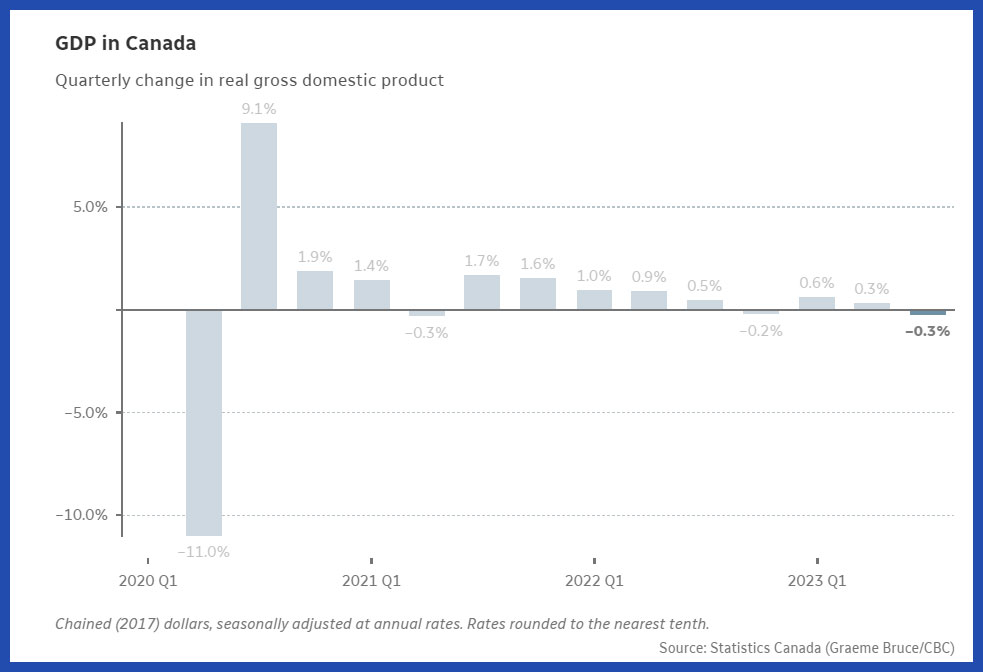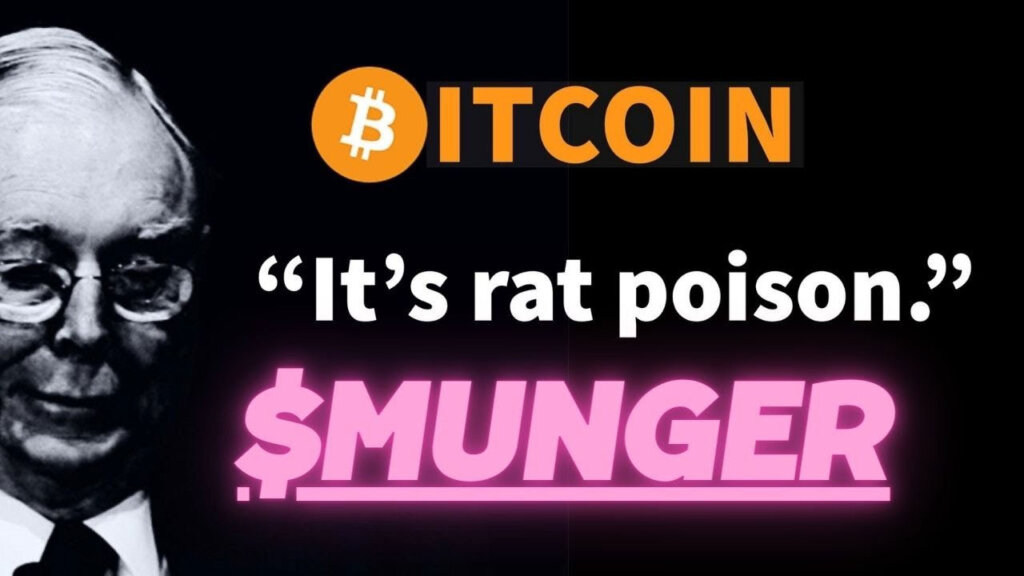Making sense of the markets this week: December 3, 2023
Why Canada probably isn’t in a recession, mixed results for both Canadian banks and pipelines, the mixed results for Couche-Tard, and RIP Charlie Munger.
Advertisement
Why Canada probably isn’t in a recession, mixed results for both Canadian banks and pipelines, the mixed results for Couche-Tard, and RIP Charlie Munger.

Kyle Prevost, creator of 4 Steps to a Worry-Free Retirement, Canada’s DIY retirement planning course, shares financial headlines and offers context for Canadian investors.
This week saw a perfect example of why the word “recession” has now largely been rendered irrelevant.
Before we get to why all this recession talk can be misleading, here are the facts:
So, obviously we’re in a recession, or at least we’re in a technical recession, right?!
Nope.
In its Q3 announcement, Statistics Canada revised its second-quarter GDP measure. To me, it says: “Yeah, so we had another look at the numbers, and, uh, it turns out instead of a slight contraction of GDP, we actually had a very small growth in GDP. So, if you look at the six months from April to September, there was a very small overall shrinkage in Canada’s GDP, we’re not in a ‘technical recession’.”

The much bigger story here could be that Canada’s large immigration numbers are creating an overall GDP number irrelevant to the average Canadian. After all, most people want economic reporting to explain if their own personal situation is likely to get better or worse.
When you look at our GDP-per-capita and overall production-per-capita numbers, Canada is right where it was in 2017.
That’s not to say that increased immigration is a problem or that it has a negative economic effect. I personally feel quite the opposite.
It’s simply a question of how to explain math to Canadians. Whether Canada’s economy grows by 0.2% or shrinks by 0.2% from quarter to quarter is much less important than the fact we’re increasing population by 2.7% per year, and getting nowhere near the level of GDP growth. If our collective economic pie is staying essentially the same size (or perhaps growing very slowly), but we’re cutting it into more and more pieces at an increasing rate, then the most relevant statistic isn’t GDP. Rather it’s the real GDP per capita.
And by that measure, that should points to a real recession now. (If we can have technical recessions, then why not real recessions, as well.)
(Here’s how one economist talks about if Canada is really in a recession.)

Get up to 3.50% interest on your savings without any fees.

Lock in your deposit and earn a guaranteed interest rate of 3.65%.

Earn 3.7% for 7 months on eligible deposits up to $500k. Offer ends June 30, 2025.
MoneySense is an award-winning magazine, helping Canadians navigate money matters since 1999. Our editorial team of trained journalists works closely with leading personal finance experts in Canada. To help you find the best financial products, we compare the offerings from over 12 major institutions, including banks, credit unions and card issuers. Learn more about our advertising and trusted partners.
Many Canadian investors have done quite well over the past few decades by investing in our domestic banks. This year has been a different story though as the banks have collectively trailed the broader Canadian market.
Here’s how the banks have done over the last three months:
For several years, RBC has consistently had a higher price-to-earnings ratio than other Canadian banks. This is often chalked up to the premise that RBC is the strongest brand of the bunch, and the most diversified. It has also grown its revenues at a pace that justifies the higher valuation.
After Scotiabank scared everyone on Monday with a big earnings miss, RBC proved why quality matters.
Overall with four of the “Big 6” banks having reported earnings before we went to press it appeared to be a mixed bag. Two main through lines appear consistent:
Scotiabank was the largest surprise to the downside, while investors didn’t love TD’s results either after it announced job cuts after reporting rising expenses. CIBC came in roughly where analysts predicted, and RBC outperformed mostly due to a 36% increase in capital markets earnings.
RBC CEO Dave McKay stated:
“In a year defined by uncertainty, RBC served as a stabilizing force for our clients, communities, colleagues and shareholders. Our overall performance in 2023 exemplifies our standing as an all-weather bank.”
Tough to argue with that assessment.
Canadian dividend investors love pipelines. With Enbridge’s (ENB/TSX) announcement on Wednesday about raising its quarterly dividend to $0.915 per share (up 3.1% from $0.8875 per share), the yield on the stock stands at over 7.5%. Competitor TC Pipelines (TRP/TSX) yields a similar 7.38%.
But that yield doesn’t come without risk. A lot of younger dividend-conscious investors may not remember when TRP cut its dividend back in 1999. The stock lost more than 14% in one day.
With both stocks down over 20% from their May 2022 highs, it’s safe to say the market is nervous about future prospects. High interest rates are tough on pipelines, as the business model of borrowing large amounts of money to build big infrastructure projects becomes much less profitable as debt costs rise.
There’s reason to be hopeful, though. Enbridge stated this week that it’s forecasting higher core earnings on the back of strong natural gas transportation demand. While natural gas prices aren’t quite as high as when war first broke out on the Ukrainian border, they’re still high enough to keep the pipelines full. Canada is set to drill 8% more wells in 2024 as well, so that should only buoy pipeline demand.
Also this week, TRP announced its long-anticipated Coastal GasLink pipeline as fully complete. It owns 35% of that pipeline from the interior of B.C. to the new LNG terminal at Kitimat. Judging from the cost overruns and political chaos that surrounds the project at times, it might well be the last LNG transport built in Canada. TRP also announced it expects 5% to 7% higher core earnings in 2024.
You can read more about these two companies as part of our Dogs of the TSX investment strategy at MillionDollarJourney.com.
Quebec-headquartered convenience store giant Alimentation Couche-Tard (ATD/TSX) presented mixed news in its earnings report on Monday. (ATD presents earnings and revenues in U.S. dollars.)
Earnings per share came in at $0.82 (versus $0.79 predicted) and revenues were $16.43 billion (versus $16.32 billion predicted).
Net earnings were up slightly year over year as merchandise and revenue were up 1%, despite declining cigarette sales (the biggest weakness according to president and CEO Brian Hannasch). He says:
“We never said we’re recession proof, but recession resistant. I think we’ve got to admit there’s been some belt-tightening.”
Apparently that comment about belt tightening was enough to spook investors away from the stock, despite the solid earnings report. We think Couche-Tard could still be an excellent company at a solid valuation. While the price-to-earnings ratio of 18 times is perhaps slightly high for a retail company, Couche-Tard’s track record of adding value to acquisitions, as well as its diversified portfolio of more than 14,000 stores in 25 countries, justifies the slight premium.
In fact, we recently wrote about the company as one of the best Canadian defensive stocks at MillionDollarJourney.com.
There’s so much noise when it comes to investing that plain-spoken common sense has become one of the more valuable commodities around.
That’s why investing legend Charlie Munger was so important in the modern context. Munger passed away on Tuesday at the age of 99.
He was perhaps best known for his witty layman-speak, in addition to being the incredibly successful sidekick to Warren Buffett.
Here are some great Munger quotes to remember him by:
“There are huge advantages for an individual to get into a position where you make a few great investments and just sit on your ass: You are paying less to brokers. You are listening to less nonsense. And if it works, the governmental tax system gives you an extra 1, 2 or 3 percentage points per annum compounded.”
“You’ll do better if you have passion for something in which you have aptitude. If Warren Buffett had gone into ballet, no one would have heard of him.”
“If I can be optimistic when I’m nearly dead, surely the rest of you can handle a little inflation.”
“It’s so simple. You spend less than you earn. Invest shrewdly, and avoid toxic people and toxic activities, and try and keep learning all your life, etcetera etcetera. And do a lot of deferred gratification because you prefer life that way. And if you do all those things you are almost certain to succeed. And if you don’t, you’re gonna need a lot of luck.”
And of course my personal favourite:

On behalf of investors in Canada and everywhere else, thank you Mr. Munger for your lifetime of philanthropy and common sense!
Share this article Share on Facebook Share on Twitter Share on Linkedin Share on Reddit Share on Email